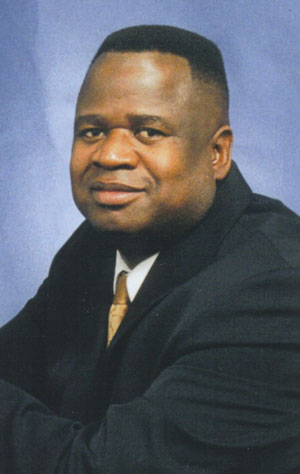Calling the case “an abuse of process,” an Ontario Superior Court judge has dismissed allegations of racial profiling by a Toronto lawyer against several high-profile officials.

The lawyer, Munyonzwe Hamalengwa, had submitted a statement of claim alleging racial profiling by a number of parties including Ontario Attorney General Chris Bentley, Ontario ombudsman André Marin, and the Toronto Police Services Board.
Part of the claim related to events during the infamous Richard Wills murder case, a matter that has also sparked a separate lawsuit by the Ontario government against the accused in order to recover public funds spent on his criminal defence in addition to ongoing assessment proceedings.
In response to Hamalengwa’s lawsuit, the defendants successfully moved to have the statement of claim struck on various grounds.
“The statement of claim does not disclose a reasonable cause of action and is an abuse of process,” Ontario Superior Court Justice Sidney Lederman said in his decision on July 27. “It is plain and obvious that the plaintiff cannot succeed if the matter were to proceed to trial.”
In doing so, Lederman rejected Hamalengwa’s claims related to breaches of his rights under the Charter of Rights and Freedoms. “The statement of claim does not plead material facts that would establish any Charter breach for racial profiling,” he wrote.
“Instead, the statement of claim is largely a combination of evidence and argument that racial profiling is a systemic problem.”
Although he was unsuccessful in proceeding further with the case, Hamalengwa is adamant about his motivation in bringing forth the statement of claim against multiple parties.
“Racial profiling of African-Canadians is an ongoing problem, and we deserve protection from the federal government, Ontario government, and police,” he says.
“My experience as a lawyer suggests that litigating various claims is futile. Class action lawsuits attack the problem and get a broader remedy. The message is sent out to participants in a group case of their [collective] wrongdoing.”
One incident Hamalengwa highlighted in his statement of claim was his involvement in the case of Wills, a former Toronto police officer convicted of first-degree murder. Hamalengwa was one of 11 lawyers hired at various times by Wills to serve as his defence counsel.
The case drew widespread attention following revelations that Wills, who divested himself of his assets and enlisted the support of Legal Aid Ontario, cost taxpayers more than $1 million in legal fees over the course of his five-year court battle.
Hamalengwa, who worked on Wills’ case for nearly 18 months and billed for just over $670,000, is currently having his fees reviewed by the Ministry of the Attorney General. “I was singled out for assessment,” he says.
“I worked so hard on the [Wills] case, [one] that a good many before me failed to resolve, and what do I get? Punishment. There is no doubt in my mind that I was isolated, along with another minority lawyer, for assessment.”
Hamalengwa says he worked on the Wills case from November 2005 to May 2007 and was fired by his client a day before the matter was to go to trial.
“I personally contributed to bringing Richard Wills to trial after many lawyers had failed after four years. I was principally doing that case for one and a half years at about $200 per hour. . . . There is absolutely nothing incorrect about that figure. Other lawyers involved made more money proportionately.”
In the meantime, Ministry of the Attorney General spokesman Brendan Crawley said assessment proceedings “to determine if full value was received for the money paid to two defence lawyers,” Hamalengwa and Raj Napal, remain ongoing.
The civil suit against Wills to recover the public funds spent on his defence “has been stayed pending the disposition of the assessment proceedings,” Crawley added.
For more on this story, see
"Napal says he will fight Wills fee review to SCC."

 The lawyer, Munyonzwe Hamalengwa, had submitted a statement of claim alleging racial profiling by a number of parties including Ontario Attorney General Chris Bentley, Ontario ombudsman André Marin, and the Toronto Police Services Board.
The lawyer, Munyonzwe Hamalengwa, had submitted a statement of claim alleging racial profiling by a number of parties including Ontario Attorney General Chris Bentley, Ontario ombudsman André Marin, and the Toronto Police Services Board.